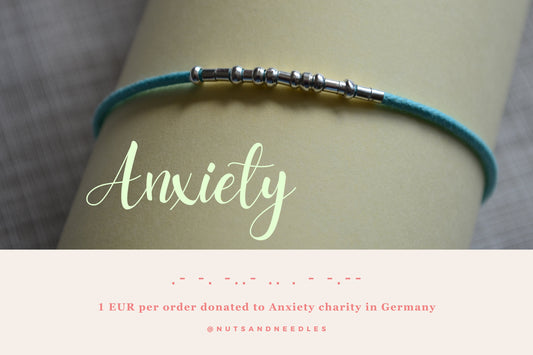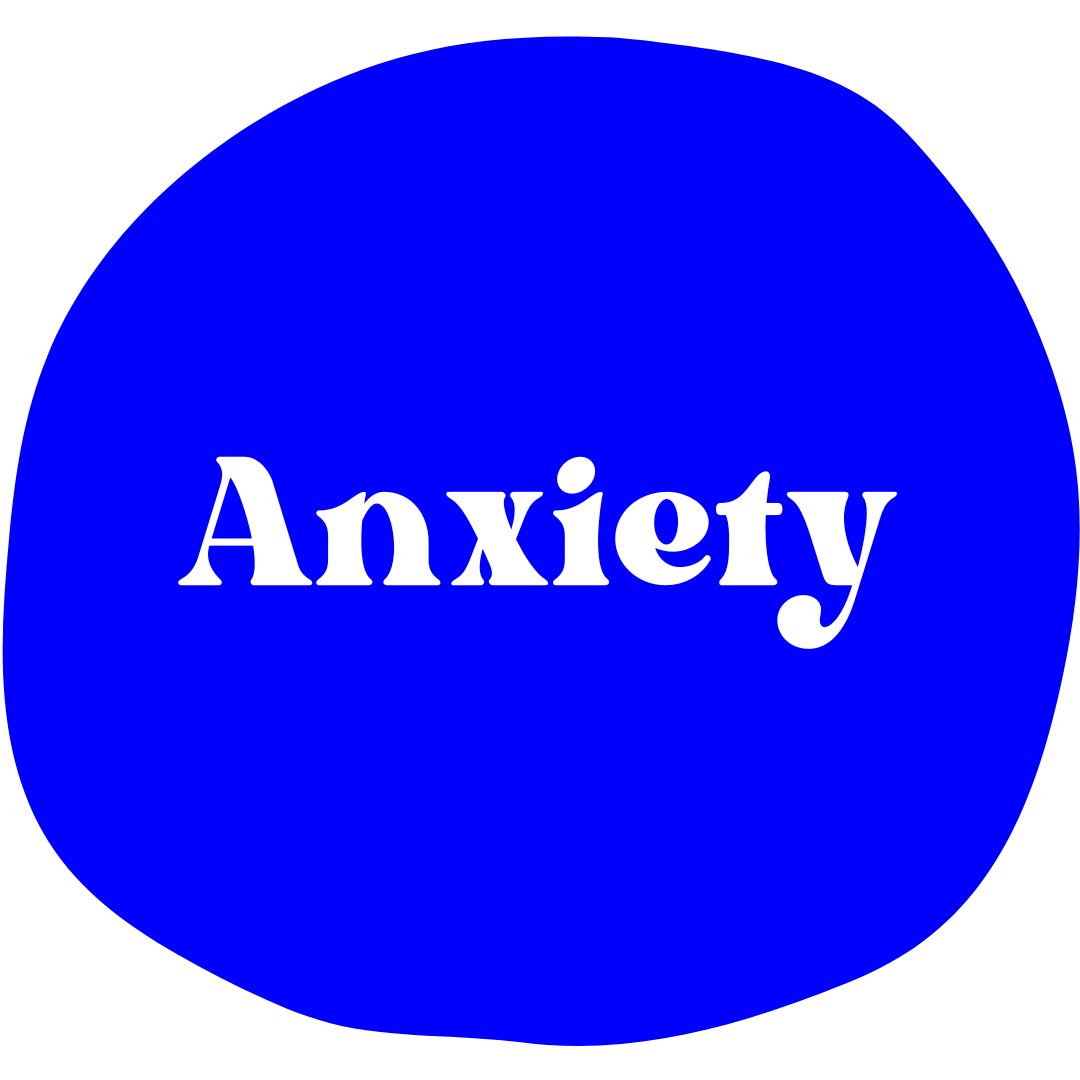written by Sarah Doleschal (nuts&needles)
Anxiety disorders are common and can be debilitating. They can make it hard to cope in everyday life, and they are often misunderstood by others.
If you have an anxiety disorder, you may know exactly what I'm talking about. If not, you know how it feels:
Imagine that every day is a little like putting on your favorite sweater that's been in the washing machine too many times - it stretches just enough to fit funny, but not so much that you have to throw it away. Now imagine feeling like the fabric is stretchy all day long. You could feel this way for days, weeks, or years - and then one day something happens (maybe even something small) and suddenly you're back to square one with this feeling of being stretched in all directions.
Anxiety disorders are a group of mental health conditions that can make you feel anxious, fearful, and worried. They can interfere with daily life and cause severe physical symptoms such as shortness of breath and rapid heartbeat.
There are several types of anxiety disorders, including generalized anxiety disorder (GAD), panic disorder, phobias, and post-traumatic stress disorder (PTSD).
Symptoms of anxiety disorders include:
- Feelings of anxiety or fear that do not go away
- Racing heart or shortness of breath
- Sweating or trembling
- Nausea or diarrhea
- Insomnia or difficulty concentrating
Anxiety disorders are the most common type of mental illness in the United States. They affect more than 18% of adults each year - that's 40 million people. You may not realize it, but anxiety disorders affect people of all ages and social classes. It is not something that only affects other people - it can affect anyone at any time. It is important to know that you are not alone if you are facing this problem.
How does anxiety disorder arise?
Anxiety disorders develop over time as a result of an interaction between genetic factors and environmental stressors. A person's genetic makeup determines their baseline level of anxiety, but it is the environment that determines whether the person experiences anxiety symptoms severe enough to be diagnosed with an anxiety disorder. For example, if anxiety disorders run in a person's family, but they live in a stable environment where they feel comfortable, chances are they will not develop an anxiety disorder. However, if the same person has a family history of anxiety disorders but lives in a chaotic environment with few support systems (e.g., living in poverty), then they are more likely to develop an anxiety disorder.
What challenges do people with anxiety disorders face?
Some people with anxiety disorders have occasional panic attacks - sudden episodes of intense fear or discomfort that may be accompanied by physical symptoms such as chest pain and shortness of breath. Other people suffer more frequent or constant feelings of panic that occur without warning and can last for minutes or hours.
People with anxiety disorders often struggle with a variety of issues. Some of these challenges include:
- Increased risk of developing other mental illnesses such as depression or substance use disorders.
- Social withdrawal & difficulty maintaining relationships with friends and family
- Decreased ability to work or study
- Increased medical costs due to physical symptoms (such as nausea or headaches)
How can anxiety disorder be treated?
Anxiety disorders can be treated with therapy or medication. The goal is to help you manage your symptoms so they don't interfere with your daily life or cause you other problems.
DOs in dealing with anxious affected people
Dealing with people with anxiety disorders can be intimidating, especially if you don't know how to deal with them. It's important to remember that these people aren't trying to annoy you or make your life miserable. Anxiety disorders can be incredibly debilitating, and it's not their fault that they struggle with them.
However, there are certain things you can do to help them feel better and get through their day! Here are a few tips:
When trying to help someone with their anxiety, remember that words matter! So try not to make statements that sound like judgments or criticisms - that will only make the situation worse. Instead, try saying things like "I'm here for you" or "I'm here if you need me." Such statements will help your loved one feel supported and cared for - exactly what they need most in this situation.
In acute situations of a panic attack, the following is helpful:
- Convey safety and provide protection for the person
- Please do not touch the affected person under any circumstances! This can make the attack worse.
- calming breathing exercises
- Cognitive mind games to distract (e.g., "I see something you don't" to reorient or "city-country-river"
- It helps a lot to stimulate the vagus nerve with counter stimuli to panic to combat numbness, e.g.
- Feel cold (put ice cubes in hand or to suck on, take cold shower).
- Taste sourness or sharpness (lemon juice, center shocks, cloves, spicy gum, etc.)
- Smell a pleasant scent associated with something positive
- Fidget toys and other (DBT) "skills"....
DON'Ts in dealing with anxious affected people
When dealing with people who suffer from anxiety disorders, it is important to avoid these common pitfalls:
- Avoiding them altogether.
- Being too casual or friendly, making them feel uncomfortable.
- "You need to relax."
- "Calm down."
- "Don't worry so much."
- "It's nothing."
- Not letting them know you are available for support if they need it - they may be afraid to ask for help, and even more afraid of being judged for asking for help.
- Don't try to fix them. That's not your job. If someone tells you they are struggling, listen to them, show understanding, and then refer them to agencies that can help them get the support they need.
- Don't downplay or dismiss their experiences. Just because someone doesn't fit your definition of "anxiety" doesn't mean they don't suffer from it. There are many different types of anxiety disorders, and they all deserve respect and care.
- If you are going through a particularly stressful time in your own life, take time to come clean with yourself before offering advice or support to others.







